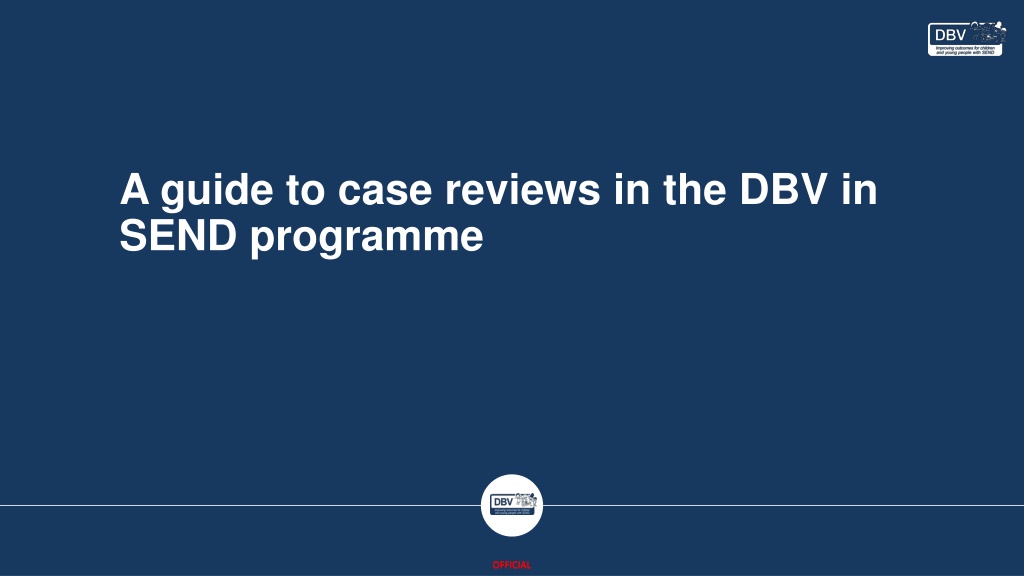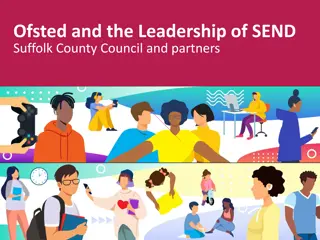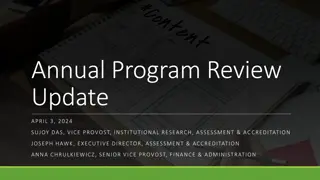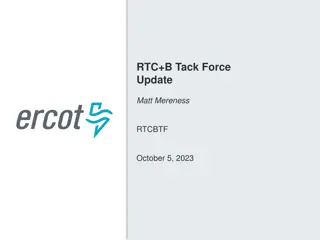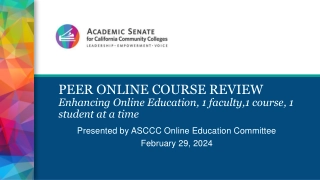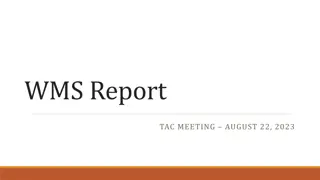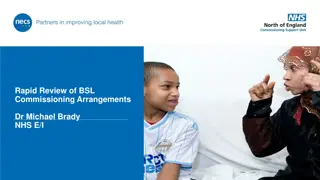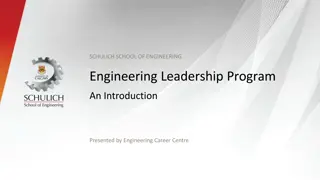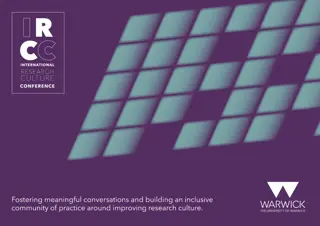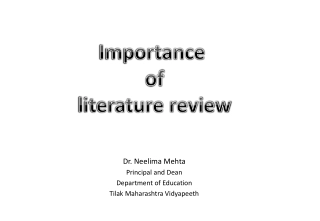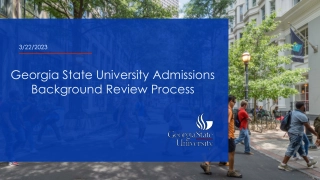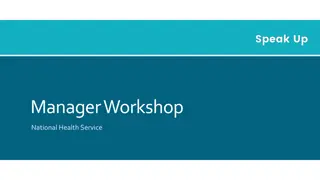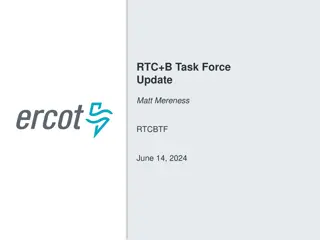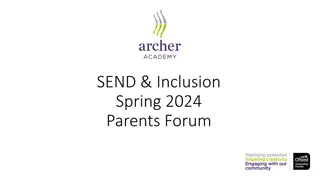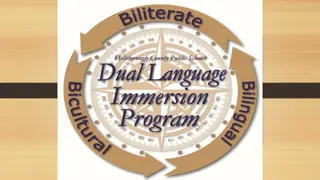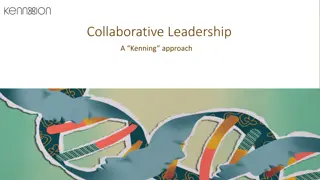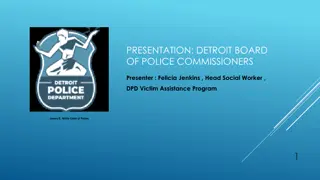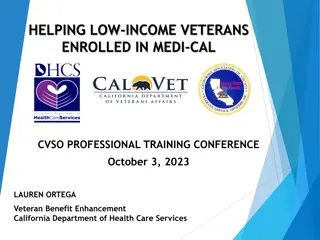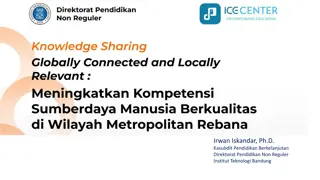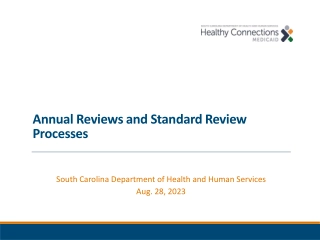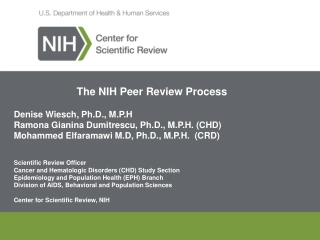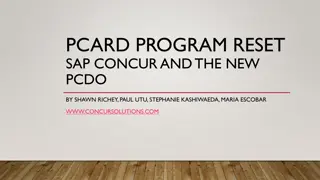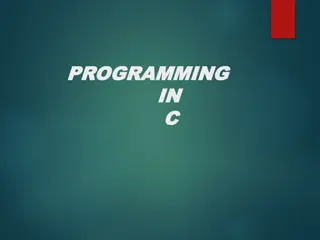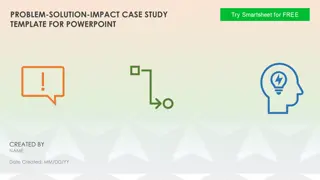Enhancing SEND Program Impact through Case Review Workshops
The Case Review workshops in the Delivering Better Value (DBV) Programme aim to bring together practitioners and partners to discuss children and young people with SEND, identify system changes for better support, and co-produce plans for implementation. These reviews focus on evidence-led approaches, recognizing both excellent practices and areas for improvement, ultimately creating impactful and sustainable change within the SEND system.
Download Presentation
Please find below an Image/Link to download the presentation.
The content on the website is provided AS IS for your information and personal use only. It may not be sold, licensed, or shared on other websites without obtaining consent from the author. Download presentation by click this link. If you encounter any issues during the download, it is possible that the publisher has removed the file from their server.
Presentation Transcript
A guide to case reviews in the DBV in SEND programme OFFICIAL OFFICIAL
Why are we running these Case Review Workshops? The Case Review workshops are to support the Delivering Better Value (DBV) Programme and will directly contribute to creating impactful and sustainable change for Children and Young People with SEND. What is the Delivering Better Value (DBV) Programme? The DBV programme is commissioned by the DfE and will support 55 Local Authorities to identify the highest impact system changes that each authority involved can make to better support their local children with SEND, and create co- produced plans to implement those changes. The programme will place children and young people with SEND at the centre of the approach and decision making, and will draw on the knowledge and expertise of front line staff and local system partners. How do these Case Reviews contribute to the DBV Programme? To enable us to produce a plan that is centred around the highest impact changes, we need to ensure that the programme is underpinned by a comprehensive evidence-led approach, drawing on expertise and experience of practitioners, staff and partners from all across the system. Case Reviews allow for the real life experience of our children and young people to be at the forefront of this conversation, helping us recognise and identify where have we shown excellent practice, and what are some areas where we have the opportunity to improve and do better. OFFICIAL OFFICIAL
What is a Case Review? Case review workshops are an opportunity for practitioners and partners across the SEND system to get together and discuss different children and young person outcomes and journeys, to better understand how internal and external factors can impact the work we do. What Case Reviews Are What Case Reviews Are Not A chance for practitioners and partners to share their experience and knowledge on the biggest strengths and challenges Case audits or inspections Looking at challenging individual practice Give everyone a chance to reflect on wider system challenges in a strength-based way, and reflect on what works well Requiring attendees to prepare anything for discussion, as they would with supervisions Evaluate how well we work with our partners, and what we could both do differently to help more service users. Attendees do not leave with actions with their cases An opportunity to look over the journey of a child or young person with SEND. OFFICIAL OFFICIAL
What are the Key Discussions in Case Reviews? Prior to taking part in the Case Review workshops, it is beneficial to reflect on what does ideal look and feel like for our Children and Young People focusing on thinking outside the bounds of the constraints and challenges of our current system. One of the key discussions we are looking to discuss as part of case reviews: Is this child or young person in the ideal setting, or receiving the ideal support to support them achieving their long- term goals or aspirations? Post in the chat what you think of when you try to identify what ideal would look like when supporting a child or young person Whilst Practitioners and Partners across our SEND system are passionate about ensuring the ideal outcomes for our children and young people with SEND are consistently met, we recognise that internal and external factors may prevent this from always being possible. Following on from your answers shared in the previous question, we would like to open up a discussion around: If not, what are the blockers or barriers that exist in our current system that prevented us from achieving that for the child or young person? This will help us to identify key themes and challenges to prioritise future changes OFFICIAL OFFICIAL
OFFICIAL OFFICIAL
Case Review Workshop Example For the purpose of the following Case Review workshops, we encourage you to initially put all the existing limitations of our current SEND system, and the identified blockers and barriers, into a box and think creatively about what is ideal for these children and young people before recognising if there are any current blockers and barriers in the system that may prevent us from achieving this outcome. Discussion around areas of Best Practice that enabled the appropriate level of support to be put in place, or any potential barriers/blockers that may have prevented this. Discussion around the ideal level of support for this Child or Young Person based on the reviewed context Review of the case notes to give contextual information around the need of the Child or Young Person The facilitator will talk you through this and ask prompting questions in each breakout group to support the discussion in answering some of these key questions. OFFICIAL OFFICIAL
Case Review overview Case Reviews allow us to understand the journeys and experiences of children and young people through the lens of practitioners and professionals. This coupled with other evidence gathering techniques allows us to identify and quantify the highest impact changes to improve our SEND system, and ensure we are consistently achieving excellent outcomes for our children and young people on the most sustainable way. Session Structure Participants To benefit from a range of perspectives we suggest representatives from the following areas: We suggest three half day sessions with 3 breakout rooms each (totalling 9 groups). This will ensure we review a statistically significant number of cases to extrapolate trends from. Local Authority SEN Team Education Providers (e.g. Headteachers/SENCOs) Health Social Care Parents & Carers (if possible) Case Reviews We suggest breakout rooms of 4-5 people to enable discussions (participants can attend multiple sessions as required). Session 1 Session 2 Session 3 Breakout Room 1 Breakout Room 1 Breakout Room 1 Facilitators A facilitator per break out room is required these tend to be from the Local Authority SEN team. They will guide the discussion and share information regarding the CYP. There will virtual drop-in training sessions available to these individuals ahead of the case reviews. There will also be Newton support for these sessions. Breakout Room 2 Breakout Room 2 Breakout Room 2 Breakout Room 3 Breakout Room 3 Breakout Room 3 OFFICIAL OFFICIAL
